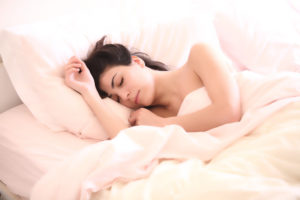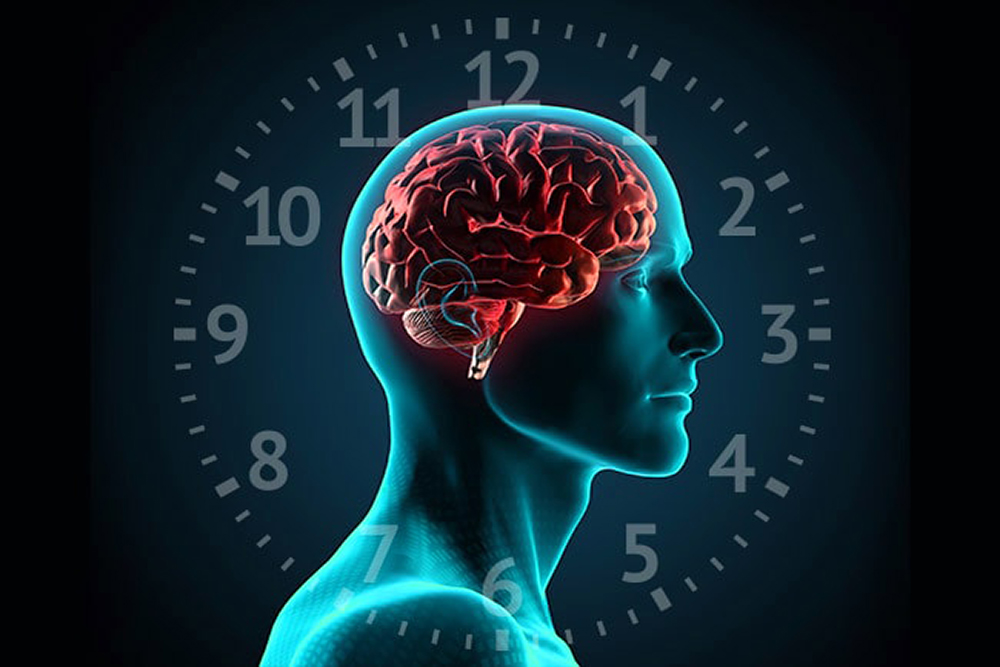The 2017 Nobel Prize in Physiology or Medicine was awarded to 3 American scientists who performed research and discovered key molecular mechanisms that control circadian rhythms. This is very exciting news since circadian rhythms operate throughout the body. Peripheral clocks are found in the cardiovascular system, adrenal glands, gastrointestinal track, pancreas, liver, lungs, muscles, thymus, spleen and the skin. The circadian clock is also believed to have a major effect on obesity and diabetes (Karatsoreos IN, 2012).

Clock genes are individual parts of the circadian clock similar to cogwheels of a mechanical watch. These genes communicate with each other in a special way producing fluxuations in gene expression. The value of circadian clocks is a consecutive activation of genes.
CLOCK® is a new, patent pending, cutting edge product created to help restore circadian rhythm balance. CLOCK® demonstrated to significantly enhance Clock (circadian locomotor output cycles kaput), Bmal1 (brain and muscle Arnt-like protein 1), Sirt (Sirtuin 1), F-box and leucine-rich repeat protein 21 (Fbxl21) and Fbxl3 expression in a dose-dependent manner, compared to the control cells.
In addition, in 2 double blind human studies CLOCK® significantly increased plasma melatonin, a biomarker of circadian dysregulation and other related biomarkers.
CLOCK® also demonstrated to lessen the damaging effects to these core proteins expression, which was induced by oxygen-glucose deprivation (OGD) to treated L6 muscle cells. OGD is the most commonly used in vitro model for ischemia related to neuronal problems. The results showed that CLOCK® may help improve circadian rhythm dysfunction.
Besides this laboratory research, CLOCK® has been studied in 2 double blind, placebo controlled human trials showing that it increases plasma BDNF, irisin, acetylcholine, choline and melatonin. Melatonin is considered the sleep hormone, it is stated that it is a biomarker of circadian dysregulation (Mirick DK, et al, 2008).
CLOCK® is considered to be a pre-sleep nootropic product to support cognition by increasing key biomarkers.* It is composed of a proprietary blend of plant extracts, Rosemary (Rosmarinus officinalis) and Daylily (Hemerocallis fulva).
When taken before bedtime, CLOCK® may boost factors that support cognitive brain function and provide other benefits while you sleep.*

Background information:
The circadian rhythm cycle has been referred to as a bugle call every 24 hours that occurs where a group of proteins come together in the nucleus of cells throughout the body. They bind together on a genome and have an impact thousands of genes that are transcribed into proteins. The cells begin to operate and influence the tissue’s activity. For example, when you wake up in the morning you may become hungry.
Body temperature and mental focus and alertness are influenced by circadian rhythms dependent on the time of day.
BMAL1 is a protein with 626 amino acids and is involved in mammal’s autoregulatory transcription translation negative feedback loop, which is key to generating molecular circadian rhythms. Research shows that human’s circadian clock depends on the master genes CLOCK and BMAL1 “to drive rhythmic gene expression and regulate biological functions under circadian control” (Menet JS et al, 2014).
